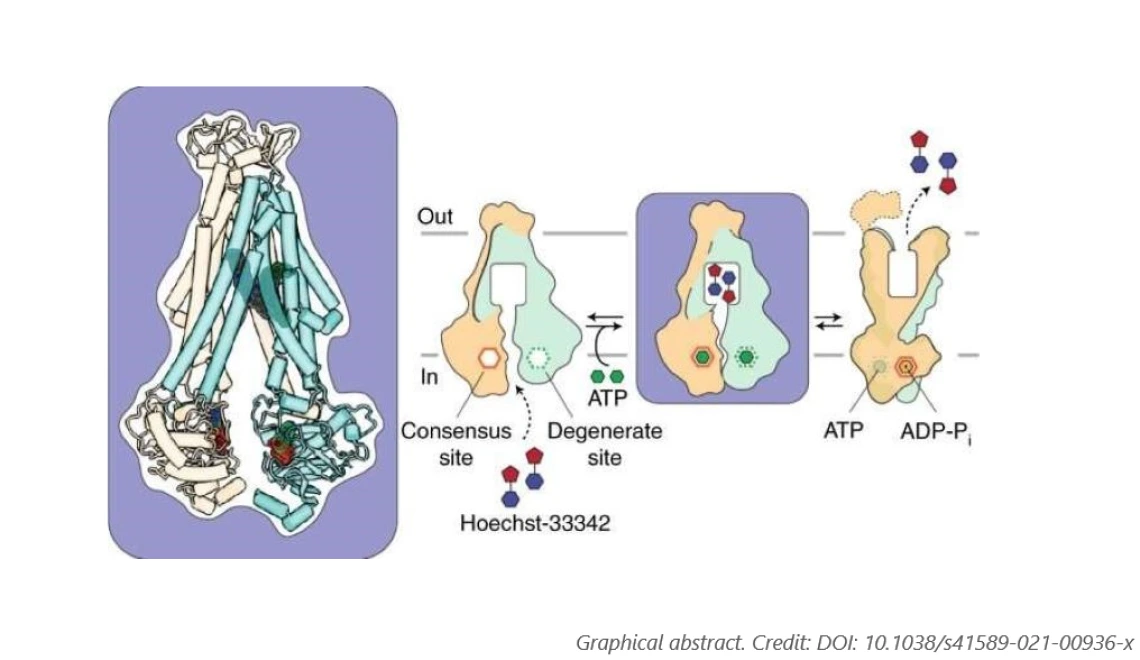Study: How bacteria become drug resistant

The journal Nature Chemical Biology published the study findings by researchers and co-corresponding authors Dr. Thomas Tomasiak, Assistant Professor in the Department of Chemistry and Biochemistry at the University of Arizona and Hassane Mchaourab, Ph.D., Louise B. McGavock Professor in the Department of Molecular Physiology and Biophysics at Vanderbilt.
Their research has revealed more of the inner workings of a two-stage "molecular motor" in the cell membrane that enables bacteria to become resistant to drugs. These findings will aid the search for inhibitors that can "turn off" the protein, Called an ABC Transporter. They also inform efforts to block the human version of the transporter that enables tumor cells to become resistant to chemotherapy.
According to the U.S. Centers for Disease Control and Prevention, antibiotic-resistant bacteria and fungi infect at least 2.8 million people in the United States each year and are responsible for more than 35,000 deaths.
You can read the full article here: https://phys.org/news/2022-01-explores-bacteria-drug-resistant.html






